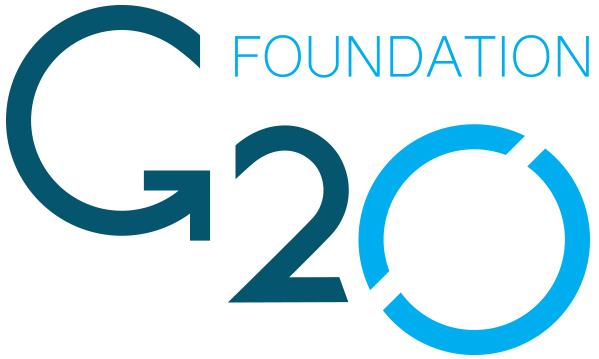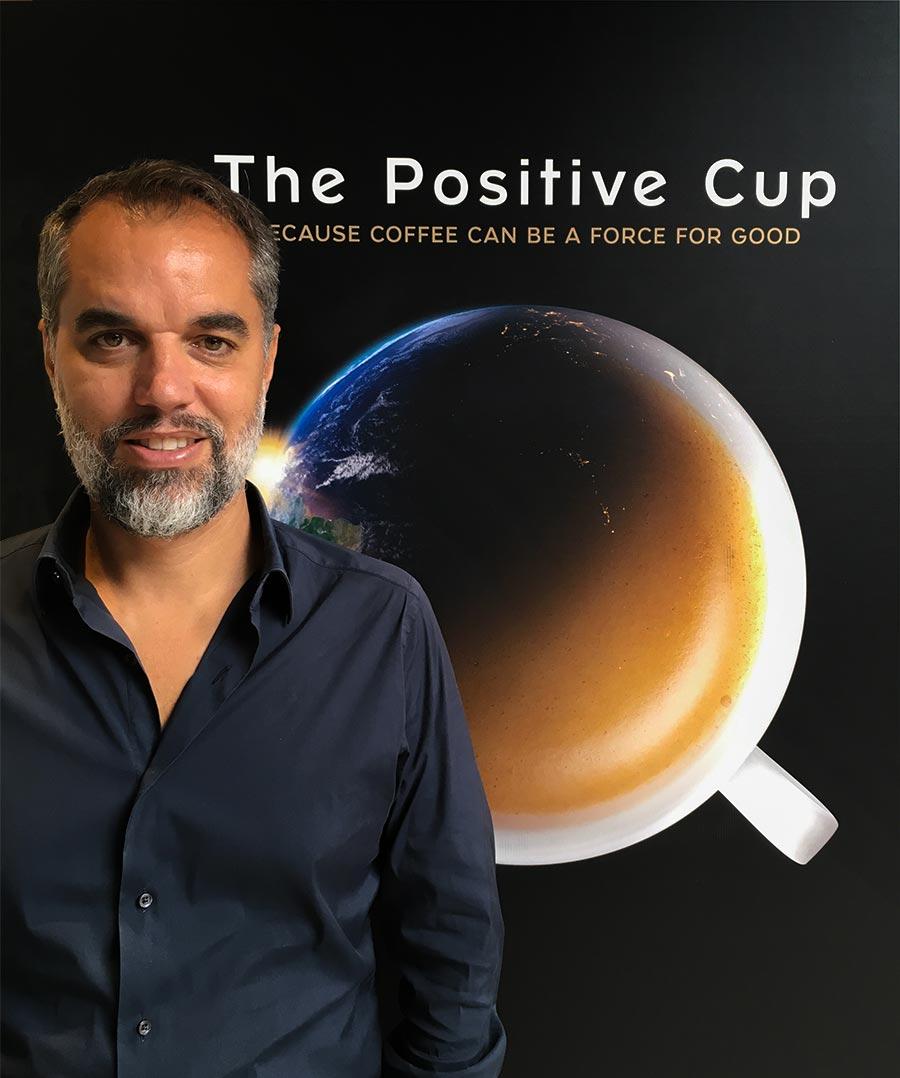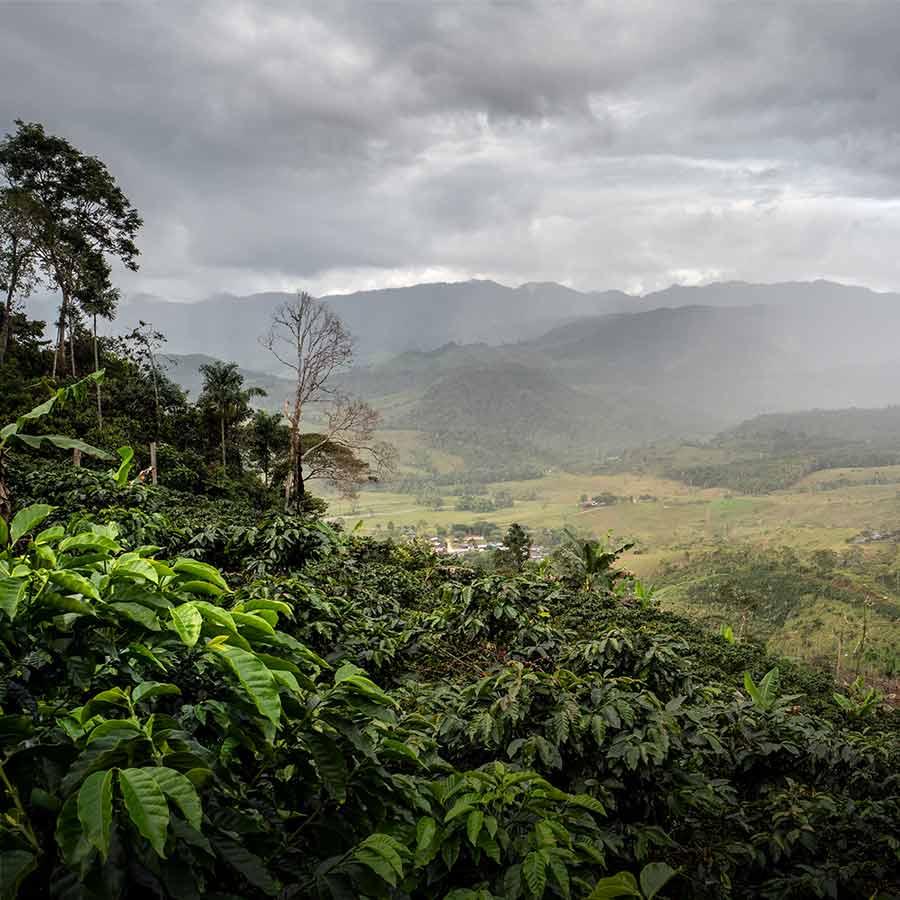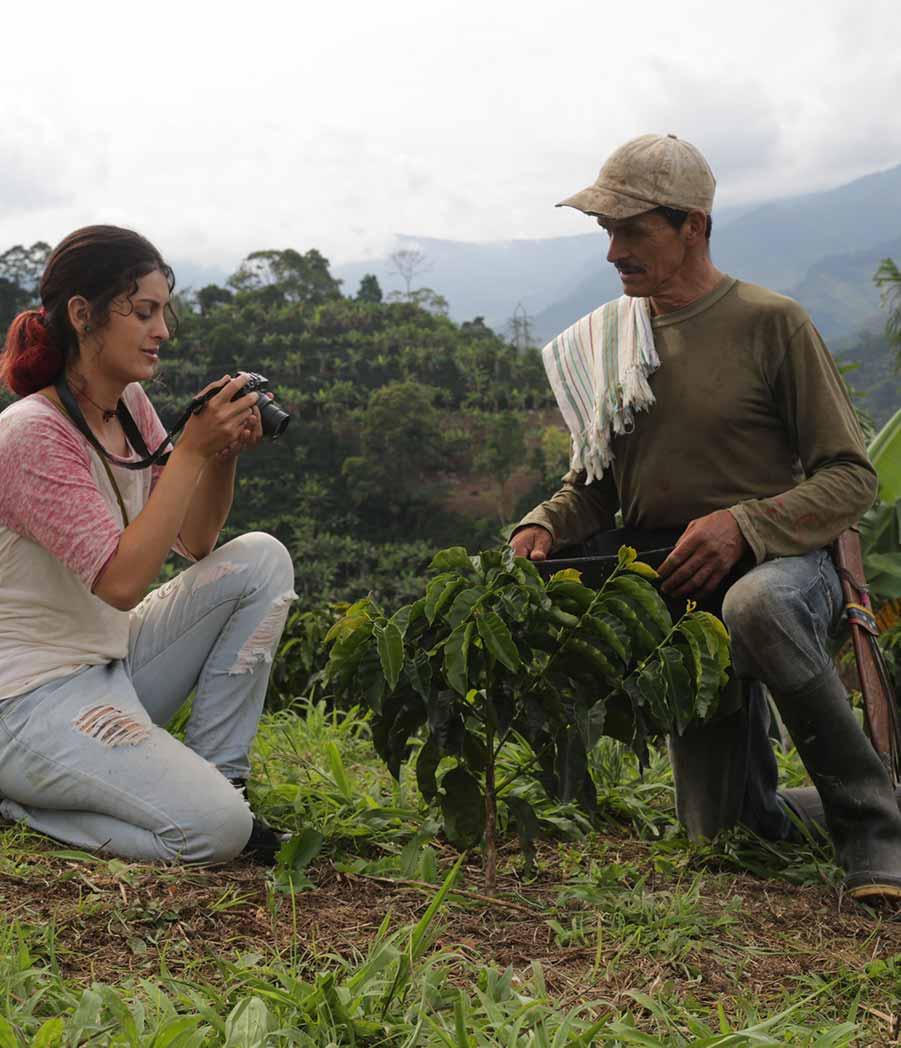
The G20 Foundation is an independent platform for government innovation funds formed to help develop a framework for better global governance.
In preparation for G20 summit in Argentina in 2018, the G20 Foundation publication spoke to Jérôme Perez about The Positive Cup – its mission, progress and vision for the future.
G20 Foundation: What is the defining characteristic of Nespresso’s sustainability vision? What do you hope to achieve?

Jérôme:
Sustainability is one way by which we bring to life our company purpose to inspire tasteful and meaningful living. We defined a vision for sustainability within our strategic framework of The Positive Cup: to make each cup of Nespresso an extraordinary experience, creating pleasure for consumers and benefits for society and the environment.
For 30 years, we’ve been integrating sustainability into our activities. By focusing on the areas most material to our business and our stakeholders, we can contribute to long-term business performance and deliver a positive impact on society and the planet through our value chain. We call this ‘Creating Shared Value’.
Our sustainability journey includes the following ambitions:
- To ensure sustainable coffee sourcing, improving the livelihoods of farmers and communities
- To unlock solutions for the circular use of aluminium with a focus on sourcing and recycling
- To take integrated actions on climate change through mitigation and adaptation
- To engage employees, partners and consumers in our sustainable production and consumption initiatives
Working towards these goals, will enable us to contribute to 11 of the 17 UN Sustainable Development Goals – particularly SDG12: Sustainable Production and Consumption and SDG8: Decent Work and Inclusive Growth.
G20 Foundation: Please give us some background on your AAA Sustainable Quality™ Program.
Jérôme:
To fulfil our promise to consumers, we depend on the consistent availability of the highest-quality coffees and therefore on resilient farming communities. For us, quality and sustainability go hand-in-hand.
In 2003, together with the Rainforest Alliance, we designed the Nespresso AAA Sustainable Quality™ Program, our coffee sourcing program, to promote sustainable agricultural practices and build long-standing relationships with producers.
Since 2014, the AAA Program has also been aiming to create innovate solutions for broader systemic challenges such as climate change, social security and gender equality. Last year, we joined the Sustainable Coffee Challenge led by Conservation International to consolidate and complement our coffee ambition into wider industry goals.
Thanks to our network of 863 AAA Program field staff, including agronomists1, 2, it now covers more than 168,500 farmers1 in 18 countries1, resulting in over CHF 43 million1 yearly investment. By the end of 2024, 91% of Nespresso’s coffee was sourced from the AAA Program1 and 57% of green coffee was certified by the Rainforest Alliance or Fairtrade International or Fair Trade USA or organic1.
G20 Foundation: We’re very interested in how your partnership with the Colombian government and Fairtrade International has created a retirement plan for smallholder farmers.
Jérôme:
The topic of aging producers is a challenge for our industry: younger generations are not incentivised to join a sector where social security is lacking.
Inspired by the mission of Fairtrade International to promote empowerment, we felt that we could further leverage the premium that is paid to the certified communities. Joining forces with them and the Colombian Ministry of Labour, we co-created a mechanism that enabled topping up 20% of the national framework of retirement for the agricultural population. At the end of 2018, over 1,700 farmers of the Aguadas Coffee Growers’ Cooperative had planned for their retirement.
And what we’re most proud of: two cooperatives have independently adopted a similar mechanism and the program is spreading beyond our core AAA regions.
G20 Foundation: How did the Peace Dividend in Colombia create such a fertile environment for sustainable development?
Jérôme:
Nespresso has a long history in Colombia. The AAA Program was rolled out in 2004 and today reaches 41,690 producers in 10 regions.
Our November 2017 announcement that we’re investing an additional USD 50 million in Colombia over the coming 5 years continues and accelerates the process of building the sustainable production of Colombian coffee. These investments run in parallel to the opening of a new area now also touched by the peace process: Caquetá. Over the last 2 years, we’ve deployed technical assistance here. Around 800 producers have been trained in our sustainable quality practices. More will be enrolled in the program, as we increase the volume of coffee purchased 5 times over the next 5 years.
Together with the National Federation of Coffee Growers, we know that coffee can drive social cohesion in post conflict situations, creating the conditions for local economic development.
The peace process brings a fertile and conducive environment for sustainable development and for attracting private sector investments. We wish to increase our investment, with external donors interested in constructing the future of Colombia.

G20 Foundation: Food and Water Security forms one of the cornerstones of this year’s G20 Agenda. Shade-grown coffee is gathering public attention as a means towards these goals. Can you elaborate?

Jérôme:
Water is essential for coffee communities: for farm productivity, post-harvest coffee processing and the quality of life of the farmers themselves. We’ve been working on this via the AAA Program, supported by co-financing institutions, to upgrade the infrastructure of water treatment solutions on-farm.
These early efforts were stepped up in 2014 through a USD 20 million multi-stakeholder initiative, known as Manos al Agua. Combining on-farm and watershed socio-environmental actions, the 5-year initiative has reached more than 11,000 coffee families.
The recent droughts in Colombia underlined the importance of shade-grown coffee farms which are more resilient than full sun production systems. Since 2014, we’ve been promoting agroforestry models for coffee production. In Colombia, 2,774,362 native trees have been planted around the coffee farms to protect water sources and provide additional income to farmers, via fruit or timber production.
The financing of this transition (which is around CHF 2 million per year) is made possible by a mechanism similar to payment for ecosystems services. The agroforestry operations are designed and implemented to deliver carbon credits that compensate the equivalent of our operational carbon footprint. This approach drives the internalisation of the GHG emissions costs while delivering multiple benefits for the farming communities, like water source protection.
G20 Foundation: Sustainability seems to have come of age, as a global issue, and corporations and consumers are now fully engaged. The product improves, the environment improves, and both corporation and consumer are enhanced. Can the Colombian model be exported across both borders and cultures?
Jérôme:
Everyone has their role to play. As a private corporation, we must engineer our value chain to ensure environmental and social performance is part of our business model. We see our role as innovating to shape tomorrow in relation to food production, agricultural land use as well as resources and the circular economy.
The Colombian model can be exported across borders and cultures but the big challenge going forward is to obtain the recognition of stakeholders like consumers, civil society and policy makers over what has been achieved. The positive actions undertaken so far need to be more widely recognised – so we can all promote best practices and further progress. We take this challenge seriously, particularly to engage consumers in the benefit of sustainable choices.
This was reflected in our 2017 brand campaign, "The Choices We Make", in which our ambassador, George Clooney, narrated the true story of Humberto, a farmer from the Jardín community in Colombia, whose life has been positively affected by the commitments of our company.
1. Data updated per The Positive Cup 2024 Progress Status document. All other data reflect the moment this article was published.
2. ‘Field staff’ includes all staff working directly on the AAA Program, including agronomists, field technicians, project and support staff.
Article published in: December 2018; updated in: April 2025


